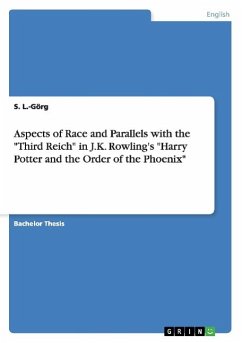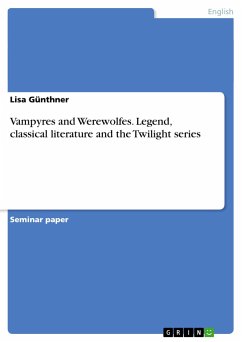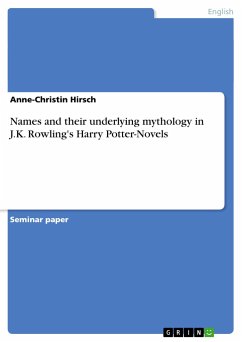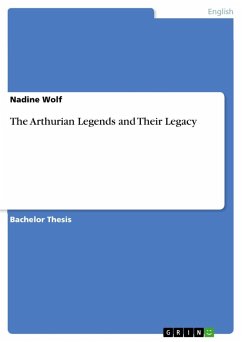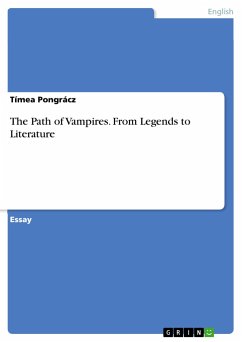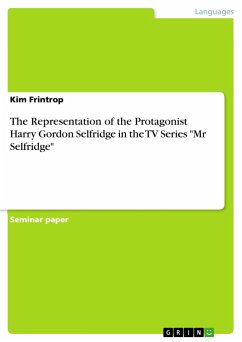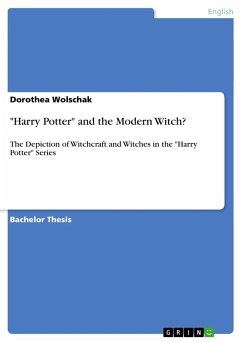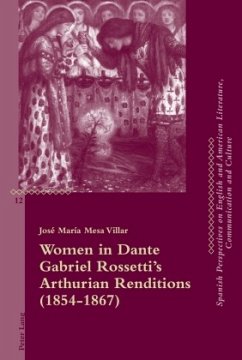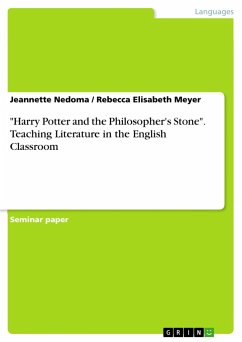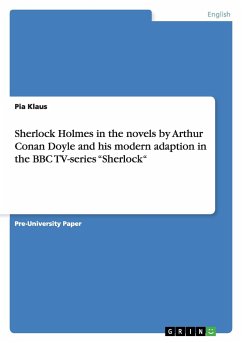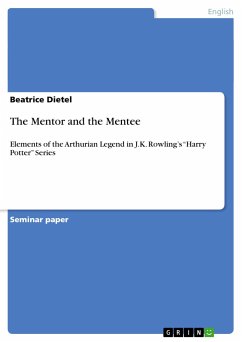
The Mentor and the Mentee
Elements of the Arthurian Legend in J.K. Rowling's "Harry Potter" Series

PAYBACK Punkte
0 °P sammeln!
Seminar paper from the year 2013 in the subject English Language and Literature Studies - Literature, grade: 1,7, University of Leipzig, language: English, abstract: In his article "Heroism: Why heroes are important" Scott LaBarge states that "we need heroes first and foremost because our heroes help define the limits of our aspirations." Heroes can be found in history since the beginning of mankind - although the term 'hero' was not used until the ancient Greeks (LaBarge). It can be said that we always were and still are fascinated by outstanding skills and personalities. One timeless tale in...
Seminar paper from the year 2013 in the subject English Language and Literature Studies - Literature, grade: 1,7, University of Leipzig, language: English, abstract: In his article "Heroism: Why heroes are important" Scott LaBarge states that "we need heroes first and foremost because our heroes help define the limits of our aspirations." Heroes can be found in history since the beginning of mankind - although the term 'hero' was not used until the ancient Greeks (LaBarge). It can be said that we always were and still are fascinated by outstanding skills and personalities. One timeless tale in which two famous heroes can be found is the Arthurian legend, namely King Arthur himself and the wizard Merlin. The story can be referred to as timeless because "it is full of universal ideas that we still feel connected to" (Hardyment). This means that, even though King Arthur and Merlin are heroes of the past, they are significant today because we still appreciate the values they embody. Down to the present day, the legend was adapted numerous times in different forms of media or used as an inspirational source. Consequently, it also found its way into children's literature, for instance into Joanne K. Rowling's famous fantasy book series "Harry Potter", which was published between 1997 and 2007 (Eldridge). In her essay "Is Dumbledore another disguise? Where to find Merlin in Harry Potter", Florence Marsal puts forward the thesis that "the consensus of [the series] is an amalgam of popular myths, foes, and heroes, reworked into a modern fantasy tale (...)".The aim of this seminar paper is to prove Marsal's thesis to a certain extent, by examining the elements of the medieval legend in the "Harry Potter" series, focusing on the characters of Merlin and King Arthur as well as Dumbledore and Harry Potter. First, a closer look at the history of the Arthurian legend, together with a definition of the terms 'legend' and 'myth', will give the reader a better understanding of the topic. Subsequently, the subject of history in "Harry Potter" will be investigated from two different angles: the handling of history within the story and the reflection of 'real historical events', together with an explanation of J.K. Rowling's usage of the past. The following sections will deal with the above-mentioned characters and in which way the ancient heroes can be rediscovered in the modern children's story. Annotating, it has to be said that, as Merlin is a "'multi-faceted' character" (Marsal), his history and characteristics cannot be discussed completely in this seminar paper.




